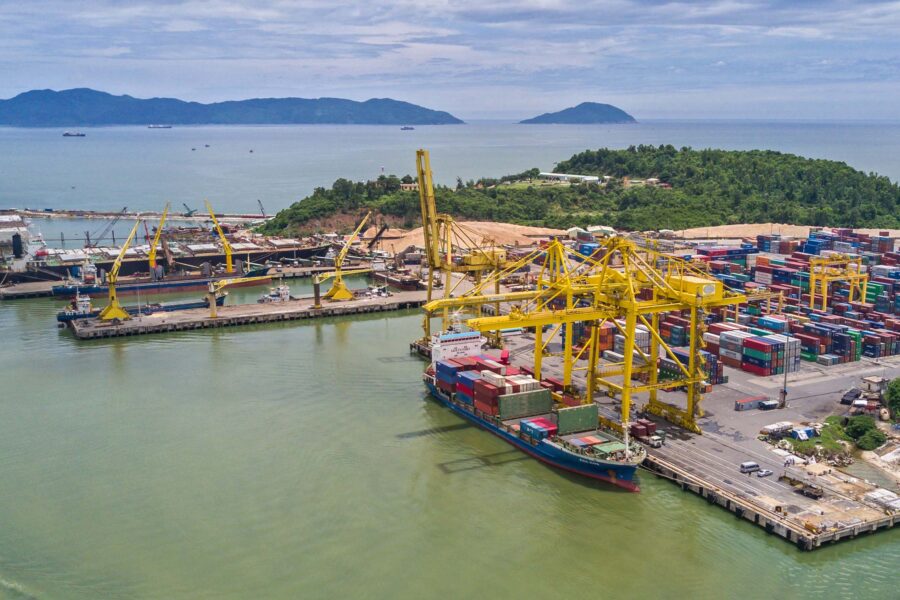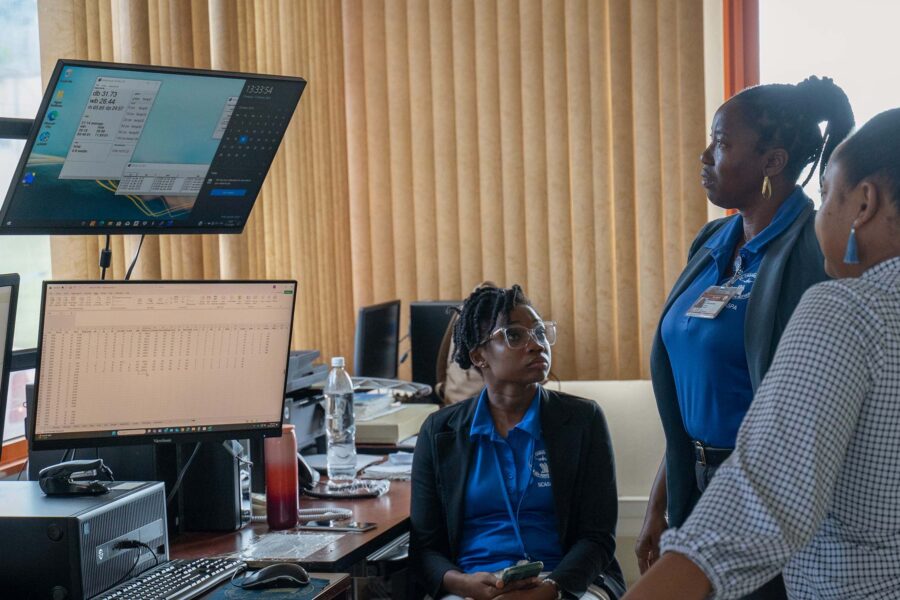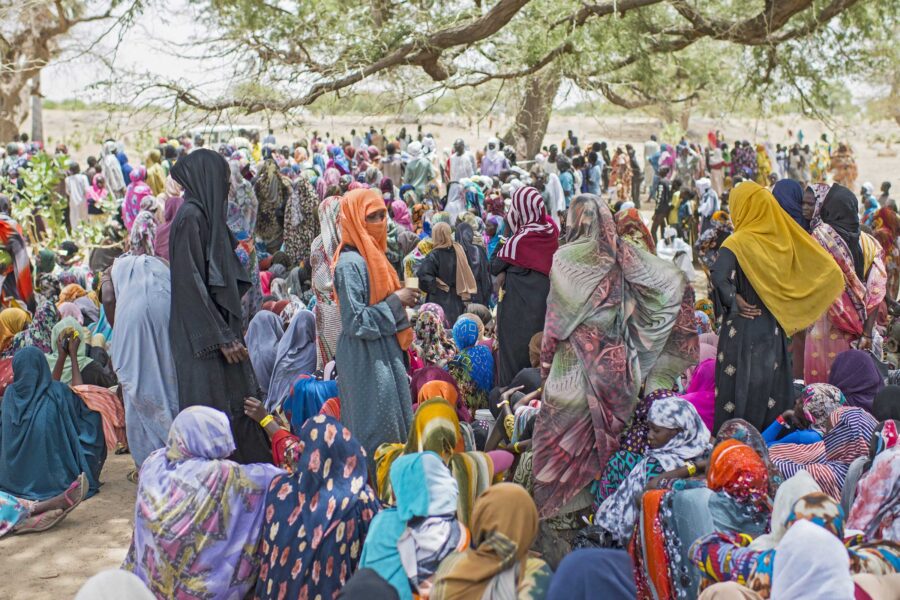A new trustee for the global commons
27 years after its operations were suspended, a reimagined UN Trusteeship Council could find new purpose as a force for action on climate change
Climate — Global

Among the most impressive characteristics of the Charter of the United Nations is its ability to harmonize lofty lyricism with precision of point. Take Article 85, for instance, which reads:
“1. The functions of the United Nations with regard to trusteeship agreements for all areas not designated as strategic, including the approval of the terms of the trusteeship agreements and of their alteration or amendment, shall be exercised by the General Assembly.
2. The Trusteeship Council, operating under the authority of the General Assembly, shall assist the General Assembly in carrying out these functions.”
While the article, in the context of the chapter on the international trusteeship system within which it is located, does refer to the physical trust territories that existed in 1945, the use of the word “areas” rather than “territories” allows it to lend itself to a wholly new sector of imagination and endeavor, now that its original decolonization mission concluded more than a quarter century ago. It is a sector whose possibilities UN Secretary-General AntónioGuterres seized in his September 2021 report Our Common Agenda, suggesting that the Council be repurposed to an inter-governmental body for intergenerational issues.
Guterres writes:
“Previous commissions and secretaries-general, along with some Member States, have proposed a repurposing of the Council to enhance the governance of the global commons. Building on these ideas, and as part of the follow-up to Our Common Agenda, I invite States to consider making the Council available as a multi-stakeholder body to tackle emerging challenges and, especially, to serve as a deliberative forum to act on behalf of succeeding generations. Among other tasks, it could issue advice and guidance with respect to long-term governance of the global commons, delivery of global public goods and managing global public risks.”
If such a renewed Trusteeship Council – a trustee of the global commons, including climate and the environment, a trustee of global public goods, including digital access and opportunity, a trustee of protection from global public risks such as a pandemic – is to be effective in “unlocking decisive action,” in Jeffrey Sachs’s phrase, how should it function? This contribution attempts to offer some ideas in this regard, particularly in addressing climate change, whose increasingly alacritous pace has proceeded in parallel with the history of the United Nations itself.
First, let’s return to a phrase from the United Nations Charter. It should be “a centre for harmonizing the actions of nations in the attainment of… common ends.” A repurposed Trusteeship Council’s focus should be on global action, not deliberation. The United Nations, and its General Assembly in particular, have been the fount of decisive global resolution, but less so of concerted action. This would be an opportunity to demarcate the terrain of the two principal organs between the articulation of ideas and the framing of policy.
Second, the Council should be a receptor for the stimulus of evidence-based documentation upon which such action can be premised. The Intergovernmental Panel on Climate Change (IPCC) is one example of such a source of fact without prescription of policy. What the IPCC has done in the environmental and meteorological field over the past third of a century could be enhanced by other convening alliances, notably the Sustainable Development Solutions Network (SDSN). These alliances could gather, collate, and make coherent the data on the specific concerns that require global action, leaving the initiation of such action to the Council. In this way, the Council would not have to devote time and responsibility to listen to individual experts or organizations, yet would retain the immense benefit of the experts’ wisdom distilled in a manageable manner.
Third, the Council should build upon the universality of national objectives manifest in the Sustainable Development Goals. Just as no risk, notably climate change, is individual to a particular nation, so too should no nation exempt itself from agreed global action in the conduct of its domestic policies.
Fourth, it should build a robust consultative mechanism with international financial institutions and sources of private funding to address some of the immediate economic hardships that particular countries may face in their joining such global action.
And fifth, in the spirit of Our Common Agenda, the Council should act also as a trustee of the future. Here, global action will need to be preventive rather than corrective and, to that extent, more difficult to win agreement on. But if the Council were to emerge as a body to which scientifically sustained projections on future areas of human achievement and vulnerability can be presented and acted upon – particularly in the overarching area of climate and all the sectors dependent upon it – it can truly go from being a forum to a force.
It will be a force that summons the energies of the range of UN agencies and offices engaged in global risk management. On climate alone we have the World Meteorological Organization in Geneva, the UN Environment Programme in Nairobi, the secretariat of the UN Framework Convention on Climate Change in Bonn, the secretariat of the UN Convention on Biological Diversity in Montreal, and the UN Development Programme in New York. Then there are the many other agencies, including those dedicated to food and health, whose work is affected by climate change. There are other principal United Nations organs, such as the Economic and Social Council with its charter mandate that it “may make or initiate studies and reports with respect to international economic, social, cultural, educational, health, and related matters and may make recommendations with respect to any such matters to the General Assembly to the Members of the United Nations, and to the specialized agencies concerned.” And there is the vast aggregate of scholarship, civil society advocacy, and affected business enterprise that commands a compelling constituency.
It is not “system wide coherence” that the United Nations has long debated and sought, but a single, empowered forum to cohere the many venues cited above – and more. Can the flashing red light on the edge of the abyss, footsteps away (to mix António Guterres’s metaphors), demand anything less?





